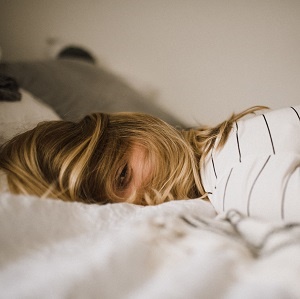
Like most medical conditions, sleep disorders are caused by both genetic and environmental factors.
By maintaining a healthy lifestyle, exercising regularly and following a healthy diet, you can mitigate some of the genetic vulnerability.
Many of us also do things before we go to bed that affect our quality of sleep. Watching TV in bed, checking our cellphones when we wake up during the night, and having no sleeping routine can all result in poor sleep.
Try to develop the following eight habits by sticking to them as closely as possible until they become routine:
1. Keep a notebook handy and write down anything that’s worrying you and which may be keeping you awake. Learn to fall asleep without thinking about it (there’s very little you can do right now, after all). Don’t wait to “switch off”.
2. Visualise something nice (e.g. relaxing on a beach or exploring a beautiful village in Europe), or replay a movie you enjoyed in your head.
3. Avoid stimulants such as caffeine, chocolate and nicotine after 6pm. Alcohol should be consumed early in the evening and in moderate amounts. It may relax you at first, but your brain could switch back on in the middle of the night after the alcohol has been metabolised.
4. Teach your brain that bed is only for sleep and sleep is only in bed.
5. Don’t toss and turn. If you’re not asleep after 10 or 20 minutes, get up and do something relaxing somewhere else – read a dull book in the spare bedroom or on the couch.
6. Don’t watch television, read a really gripping book, or try to work.
7. Don’t get anxious if you can’t sleep for a few nights. You’ll soon catch up. Comfort yourself with the thought that you’ll probably sleep better the next night or the one after that. The worst that can happen is that you’ll be tired and irritable the next day.
8. Follow the same routine every day. Your brain will learn to associate it with sleep. Exercise can help, but should be done early in the evening. Taking a shower and listening to soothing music before bedtime can also be effective.
Read more:
Treating sleep problems
Reviewed by Dr Irshaad Ebrahim, specialist neuropsychiatrist in sleep disorders at The London Sleep Centre and The Constantia Sleep Centre. FRCPsych. April 2018.




 Publications
Publications
 Partners
Partners
















